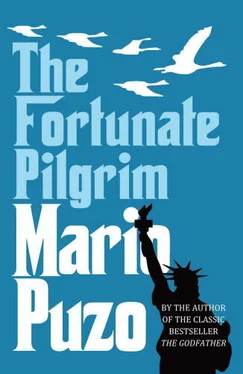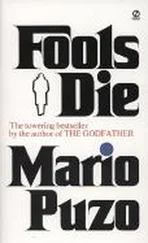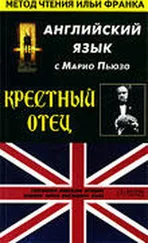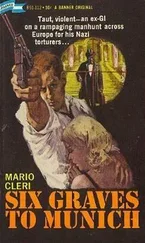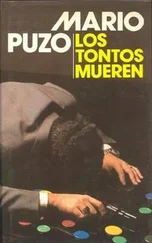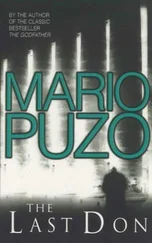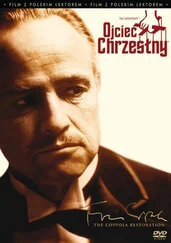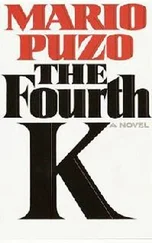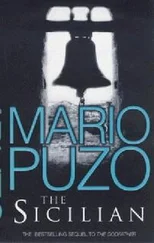But one day on the phone, Mario did give me his blessing to revisit the Corleones. He told me his family could do whatever they wanted with the rights to The Godfather after he died. (His exact phrase was “after I croak,” which I remember precisely because it was the first time an author had ever discussed his posthumous career with me in such direct terms.)
Mario left behind two novels, Omerta and his partially completed tale of the Borgias, The Family, so it was a while before I approached his estate about the prospect of reviving The Godfather. After conversations with Mario’s eldest son, Anthony Puzo, and his literary agent, Neil Olson, we agreed on a strategy.
We would discreetly search for a writer at roughly the same stage of his or her career as Mario was when he wrote The Godfather —mid-forties, with two acclaimed literary novels to his credit, and a yearning to write a larger, more ambitious novel for a broader readership than his previous books had reached. We didn’t want a by-the-numbers hired gun. We wanted an original voice, someone who would bring artistry and vision to the Corleone saga, just as director Francis Ford Coppola had done so brilliantly in his film adaptations.
I outlined what we were looking for in a one-page query, which I sent confidentially via e-mail to about a dozen respected literary agents. Within twenty-four hours of sending my confidential e-mail, I received a phone call from New Yorker staff writer Nick Paumgarten. He’d heard all about our search and wanted to write about it. At first I was reluctant to cooperate, due to my concern that every would-be goomba in the country would send me a manuscript. Upon further consideration, I realized that there probably weren’t a lot of goombas reading The New Yorker, and that a story might be a good way to get out the word and attract a broader range of authors.
The day the story was published, The Godfather Returns became headline news. I was deluged with calls from almost every major media organization in the United States, as well as many abroad, from CNN to the BBC in New Zealand. The New York Times Magazine published a cautionary essay about the dangers of sequels. I appeared on a Detroit radio morning “zoo” show with a Vito Corleone impersonator who warned me that my career might come to an untimely end if I didn’t hire him to write the book.
We had set a deadline for the delivery of outlines from potential writers. We stuck to our guidelines—only published authors of acclaimed fiction would be considered. By the day of the deadline, we had been swamped with submissions from well-regarded authors (plus countless more from unpublished ones). As I sorted through the outlines, I was taped by a TV cameraman and interviewed by NBC News correspondent Jamie Gangel, who was covering our search, and who ultimately revealed the winner live on the Today show.
I quickly narrowed down the field to about a dozen serious contenders. Some were dismissed on account of inadvisable plot lines. (Michael Corleone falls in love with a Native American activist. Or, the Corleone women take over the family business. Or, Sonny Corleone didn’t really die.) Others were rejected because the writers didn’t seem to have the right feel for the material. One literary critic described Mario Puzo’s style as “somewhere between pulp and Proust.” That’s part of the reason for his success—he was an original writer who loved to entertain his readers. He could turn a phrase, and there was a sly ironic undertone to almost everything he wrote, but Mario’s greatest talent was for telling a story that stayed with you because the details were so captivating. Our ideal writer would have similar gifts.
From the dozen contenders, we arrived at four finalists. We would have been happy to publish any of them. After consultation with Tony Puzo and Neil Olson, we unanimously agreed that the best candidate was Mark Winegardner. Like Mario, he was an author of two acclaimed literary novels, The Veracruz Blues and Crooked River Burning, and to our delight, both books had organized-crime plot threads. I read Crooked River Burning and loved it, not only for its ambition (it’s the story of the rise and fall of a great American city over a period of decades), but also because the author shows such compassion for his characters. Mario Puzo’s greatest literary inspiration was Dostoevsky, who taught him to see the humanity within the villainous. Winegardner has an equally big heart when writing about his characters. That can be very interesting when you’re going to have to kill a lot of them. He was our first choice to write The Godfather Returns and we were elated when he accepted. Our selection was international news. When Mark visited Sicily for some background research, it was a front page story there.
Neither Mark nor I have ever worked on a more highly anticipated book. We know the risks of following in the tradition of a pop classic. I’m not worried. Having edited the novel, I’m certain of its quality and its power. The Corleones have become an American myth, and like all great myths, each retelling brings new meaning and new rewards.
Jonathan Karp is the editor in chief of Random House.
Q & A with Mark Winegardner
Q. When did you first read The Godfather ?
A. When I was about twelve. Like a lot of kids who grow up to be writers, I started reading books meant for adults, looking for the dirty parts. I had good reason to believe there might be worthwhile moments there. When I heard Random House was looking for an author, I read it again with new appreciation.
Q. Why did you want to write it?
A. I feel like my entire body of work has been about the mythology of America, and this book fits squarely within that. It’s a magnificent opportunity to write about characters that people already know and are invested in, and in some ways, it’s as big a thrill as if I were writing about Jesse James or Abraham Lincoln. Particularly when I saw how much more story there was to be told, and how little The Godfather had touched on the glory years of the mob in the late 1950s, I was thrilled to have the chance to take a whack at all of that.
Q. Are you nervous about what the reaction will be?
A. I’ve been writing almost every day of my life for the past twenty years, and it’s a wonderful thing to be the author of a book people are waiting for, whether they’re sharpening their knives for it or drooling for it. A lot of writers are working away, saying, “Who will ever read this? Who will ever publish this?” The book will come out and either people will like it or not, but it’s going to be read, and I’ll move on and write other books after this one. There’s no downside.
Q. Is this a sequel to the novel or the movies?
A. The novel, definitely. Mario Puzo’s book ends in 1955. The Godfather Returns will cover the period from 1955 to 1965.
Q. But what about The Godfather II ? Isn’t there some overlap?
A. The parts that weren’t in Mario Puzo’s novel covered only one year, 1958–1959. A lot of other wicked things were going on that can be revealed only now. I don’t address events in the films that aren’t in the novel, but I don’t contradict them, either. Everything fits together, and I hope readers will be surprised to discover some of these unexplored avenues. It turns out there’s a lot we didn’t know about the Corleone family.
Q. Like what?
A. Sorry. I must obey the laws of omerta.
Q. You’re a creative writing professor and you’re not Italian. Are you qualified to be writing about the Mafia?
Читать дальше
